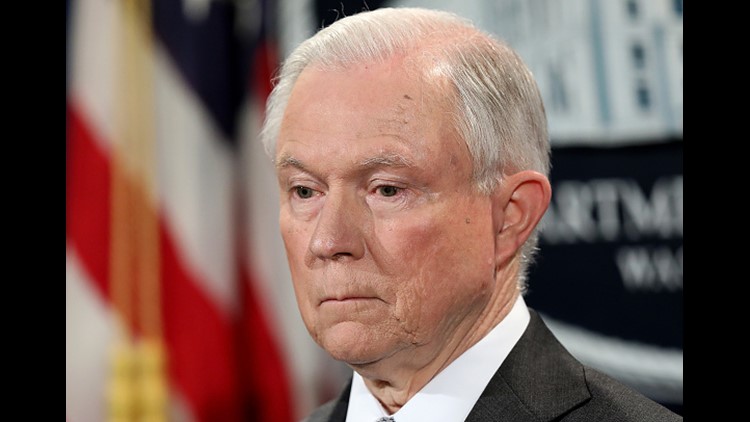Attorney General Jeff Sessions, under fire over contacts with Russians and his actions prior to President Trump's firing of FBI director James Comey, will testify in public Tuesday afternoon before the Senate Intelligence Committee.
"He believes it is important for the American people to hear the truth directly from him and looks forward to answering the committee's questions tomorrow," said Justice Department spokeswoman Sarah Isgur Flores.
Sessions is scheduled to testify less than a week after Comey told the same panel that Trump fired him in order to interfere with the investigation into Russian interference in the 2016 elections.
Comey also told senators that Sessions is vulnerable in the Russia probe because he may have had a third, previously undisclosed meeting with Russian ambassador Sergey Kislyak, a key figure in the investigation.
Sessions recused himself from the Russia investigation in March after acknowledging two contacts with Kislyak; during a confirmation hearing in January, Sessions said he had not met with Russians during last year's presidential campaign.
Senate Intelligence Chairman Richard Burr, R-N.C., and Vice Chairman Mark Warner, D-Va., jointly announced that Sessions would testify on new developments Tuesday at 2:30 p.m. ET "in open session."
Democrats said Sessions needs to resolve conflicting evidence about contacts with Russians and to explain if and why he recommended Comey's dismissal by Trump, an action that could be a violation of his recusal.
"The Senate and the American people deserve to know exactly what involvement with the Russia investigation he had before his recusal, what safeguards are in place to prevent his meddling, and why he felt it was appropriate to recommend the firing of Director Comey when he was leading that investigation," said Sen. Charles Schumer of New York, the Senate's top Democrat.
White House spokesman Sean Spicer declined to discuss Trump's "private conversations" with Sessions about Comey, and he left open the possibility that the administration may ask the attorney general to invoke executive privilege regarding them.
"I think it depends on the scope of the questions," Spicer said. "To get into a hypothetical at this point would be premature."
The high-stakes testimony also takes place amid reported friction between Sessions and Trump, who criticized the attorney general's decision to recuse himself in the Russia probe.
As news of his testimony broke, Sessions attended a Cabinet meeting with Trump at the White House.



